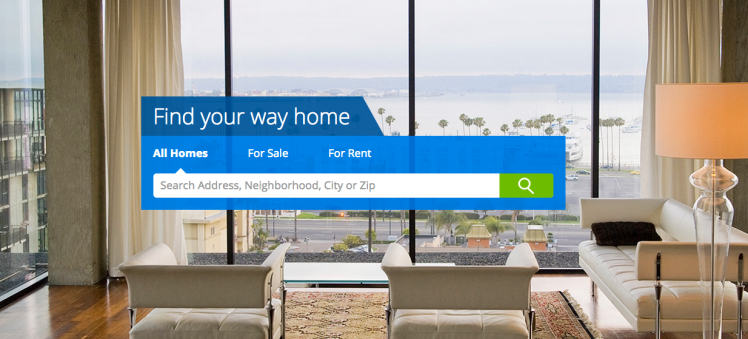 We’re delighted to announce that Amy Bohutinsky, Zillow’s chief marketing officer, has agreed to speak at GrowthBeat next month. She’ll explain how the company has grown into a $4.5 billion market-leading real estate network — within a decade, and mostly without an ad budget.
We’re delighted to announce that Amy Bohutinsky, Zillow’s chief marketing officer, has agreed to speak at GrowthBeat next month. She’ll explain how the company has grown into a $4.5 billion market-leading real estate network — within a decade, and mostly without an ad budget.
(GrowthBeat, our event in SF on August 17-18, is focused on explaining the technology and strategies companies are using to grow, in an age of thousands of new channels and devices.)
Zillow is indeed a case study of phenomenal growth on a small budget.
For its first seven years, the company had no advertising budget, relying primarily on what Bohutinsky called a “kick-ass product” to drive interest in its real estate listings site.
More recently, the company has experimented in new areas — for example, performance marketing and TV advertising — but always with an eye to accelerating traffic it has already gotten organically.
Bohutinsky, who joined Zillow in 2005 as a director and who has since risen to chief marketing officer, led the way. She accomplished the growth almost always through threadbare measures: The company gathered housing and rental pricing data in 300 cities, and drove publicity by publishing posts on its own blog, as well as through articles on other media companies.
The data included home values and rental rates, as well as foreclosure rates; many homeowners became fascinated with Zillow because they could watch the value of their homes rise and fall. When the housing crunch started in 2007, the company started telling people it wasn’t a good time to buy.
It was the “the first content marketing strategy I’d seen in any company,” Bohutinsky said.
From the start, Bohutinsky made it a point to use social media to create publicity. The company has doubled down on social channels that prove their value, such as Facebook and Twitter. With nascent channels, Zillow experiments quickly but carefully before doubling down. Most recently, for example, it has tested messaging service Snapchat and video streaming Periscope.
The results are evident: The company’s revenues will hit about $690 million this year, and it now has more than a 50 percent market share of real estate visits across the category, including from desktop and mobile users.
The company’s stock price has been hit hard over the past year, but that’s mainly as a result of its acquisition of its competitor Trulia. The seven-month merger review process by the FTC resulted in some setbacks to the company’s efforts to quickly integrate Trulia.
Bohutinsky will be sharing the details of her strategy during a fireside chat with me on Tuesday morning, August 18.
Behind it all is the conviction that the product is king, and that there’s only so much you can do by relying on metrics-driven growth and things like performance marketing.
Many companies trap themselves into spending too much money on this early on and miss building the brand, she said. “It’s like a hamster wheel,” she said. “When you pull back, your traffic tanks.”
The product emphasis was baked into the company since its founding. On Bohutinsky’s first day at Zillow in 2005, she says cofounder Rich Barton walked into her office and told her he wanted Zillow to get a million visitors a month within six months after launching, and to do so without an ad budget.
When the company launched publicly eight months later, the site had a million visitors in the first three days and 5 million in the first month.
Aside from Zillow’s focus on heavy content marketing, it also gets “earned,” or organic, traffic through things like public relations and email marketing, Bohutinsky said. After Zillow went public in 2011, and after acquiring other brands, most notably Trulia, it has had to increase its marketing budget. This year, the company said it will spend $100 million in advertising, peaking during this summer’s home-buying and selling season.
Zillow has also relied on agencies to help it get into new areas, such as TV advertising and performance advertising. The company only takes these activities in-house after understanding what sort of investment levels are necessary, Bohutinsky said.
Her talk promises to be a highlight at GrowthBeat, for both CMOs and practitioners alike. Consider joining us, and interact with other speakers including C-level executives of other companies like Yahoo, Meerkat, Visa, Belkin, Prosper, Lending Club, American Eagle Outfitters, Priceline, PG&E, and more.
VentureBeat's mission is to be a digital town square for technical decision-makers to gain knowledge about transformative enterprise technology and transact. Learn More

